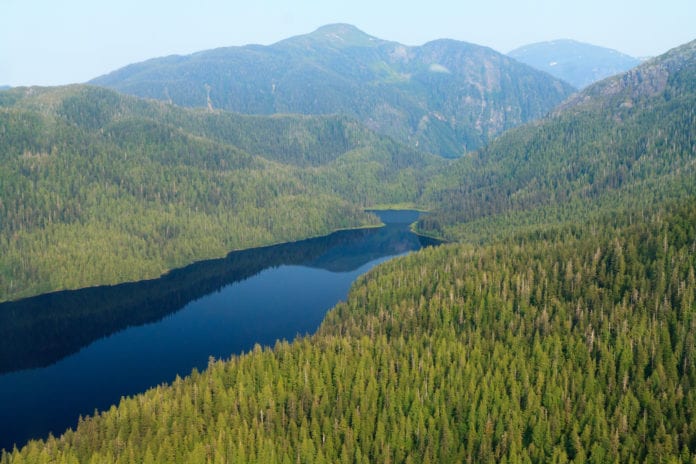By Joel Jackson
For The Cordova Times
Today is a very sad day. I’m Joel Jackson, President of the Organized Village of Kake, Alaska and it’s a very sad day for my Tribe and a sad day for all Indigenous People of Southeast Alaska. This is the day the federal government has issued its official notice that it has ignored voices of sovereign Tribal governments and acted against our wishes to open up the entire Tongass National Forest to roadbuilding and development by approving a complete exemption of the Tongass roadless rule.
The Tongass is our ancestral homeland land. Ancient trees in the Tongass forest know our ancestors and current communities’ names and these trees stand as a witness to the passage of time. Our nearby streams know my people’s lifeline to the past. My people, the Tlingit and Haida, are the only humans who have lived as witnesses and stewards to the long life of this forest. And our voices have been ignored.
Even though the mission of the U. S. Forest Service is to “sustain the health, diversity, and productivity of the nation’s forests and grasslands to meet the needs of present and future generations”, the federal government’s decision to fully exempt our Ancestral lands from protections will do significant harm to present and future generations and is a slap in the face of Indigenous people living with the Tongass.
We do not live in a city. Shopping for all our meat and produce at the grocery store is simply not an option, as costs of goods, gas, and electricity in rural Alaska are extremely high. We harvest our food and medicines from the land — and as long as we take care of it, the land will provide for us.
We did not want to be on the outside looking in, we wanted to be at the table where the decisions were being made.
President Joel Jackson, Organized Village of Kake
Protecting our homelands is essential for our way of life and our culture. We originally signed on as cooperating agencies in the Alaska Roadless Rulemaking process with five other tribes in Southeast Alaska. We did not want to be on the outside looking in, we wanted to be at the table where the decisions were being made.
The process was rushed from the start, and we experienced a year of talking, biweekly teleconferences, rushing to meet seemingly arbitrary deadlines to provide comments on preliminary draft environmental impact statements. However, after we provided comments for the preliminary draft environmental impact statement, suddenly the documents stopped coming to us for comment. We did not get to review the final draft of the draft environmental impact statement before it was released to the public, nor did we receive written notification of the document. We only discovered at the release of the documents that all our input had been for naught. The Forest Service didn’t include any of our suggestions or address our concerns when they chose a full exemption as the preferred alternative.
In response to the discrimination and dehumanization that we experienced, the Organized Village of Kake made the difficult decision to withdraw as a cooperating agency. This is how strongly we feel about being disrespected. We do not wish to withdraw our expertise, to abandon our place at the table, but it has been obvious that the table has already been set, the meal has already been eaten, and we were not invited to partake. The Forest Service and the State of Alaska have colluded to disregard input from tribal governments in this process, and we simply cannot stand by and watch this happen as ‘cooperating agencies’. We will not ‘cooperate’ in the destruction of our homelands and way of life. We will not ‘cooperate’ to give this process the sheen of legitimacy so that the Forest Service can state that they fulfilled their lawful requirements.
The Forest Service’s Washington Office officials did not engage in the Alaska Roadless Rulemaking process in good faith. The State of Alaska did not engage in this rulemaking process in good faith. It was a process that was designed from the start to diminish our voices, exclude our input, and break down our resistance.
Just as my ancestors and my community guided me to Washington D.C. to speak to decision makers, they will guide my fight into the future. The land needs to heal, and we will not be deterred from our responsibilities to future generations. We will continue to fight for our ancestral grounds, to fight for our culture, to fight for our future. Gunalcheesh, haw’aa.
Joel Jackson is the President for the Organized Village of Kake.















